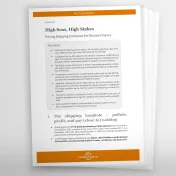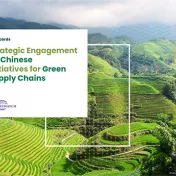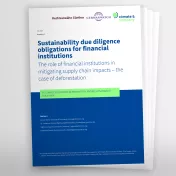
From 30 December 2024, the European Union Deforestation-free Products Regulation (EUDR) must be applied. The aim is to prevent products and raw materials from being imported into the European Union (EU) or exported from the EU that are highly likely to have led to deforestation or forest degradation. In future, affected companies will have to prove that they have taken measures to ensure that the production of certain raw materials such as wood, cocoa, or palm oil does not violate the legislation of the country of production and that forests have not been destroyed or damaged after 31 December 2020.
Smallholders are also indirectly affected by the EUDR if they do not want to lose access to the EU market: they must pass on the geographical coordinates of their production areas and the date of production to operators, who in turn must provide this data in their due diligence declaration before placing their goods on the EU market. If smallholders are unable to record or pass on the geographical coordinates of their production areas, their traders cannot place the products on the EU market - their market access to the EU is thus jeopardised.
In this policy paper, we first provide a brief overview of the challenges faced by smallholders regarding the higher requirements and also evaluate a series of targeted interviews with representatives of various industries and organisations that have already gained experience with the introduction of higher sustainability standards for smallholders and the traceability of supply chains. From this, we derive recommendations for the European Commission, Member States, companies, and production countries.





